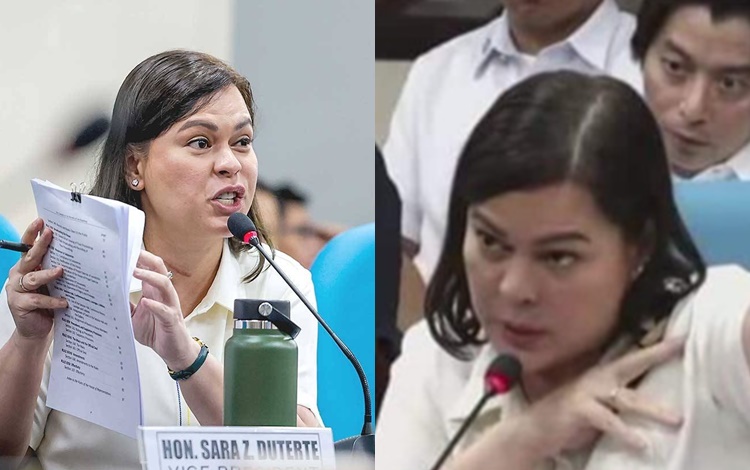Vice President Sara Duterte has inadvertently contributed a new “word of the year” with her response during the House of Representatives hearing on the Office of the Vice President (OVP) budget. The term “Shimenet” emerged from her interaction with Representative Arlene Brosas, and it quickly trended on social media, particularly X (formerly Twitter), following the controversial hearing held on August 27.

The term originated from a heated exchange between Vice President Duterte and House Assistant Minority Leader Arlene Brosas of Gabriela. Brosas had criticized the OVP’s use of a ₱125 million confidential fund from 2022, questioning why it was spent within 11 days. VP Sara Duterte responded that the issue was already with the Supreme Court. When Brosas asked if she could obtain a copy from the Supreme Court, Duterte bluntly replied, “Of course not. I am not the Supreme Court.”
Brosas argued that the funds were public, thus necessitating transparency and accountability. Duterte’s retort was, “She may not like my answer. She may not like how I answer. She may not like the content of my answer, but I am answering.” The phrase “She may not” was humorously misheard by many as “Shi-mih-net,” giving rise to the term “Shimenet.”
The term quickly gained traction on social media, with the Facebook page “Linya-Linya” defining “Shimenet” as a colloquial expression combining “shit” and “mainit,” describing a feeling of being grilled with no satisfactory response, often handled with bravado, evasion, or excuses. The meme was further popularized by notable writer Jerry Gracio, who shared it on his platform.
😂 #vibing #shiminet pic.twitter.com/zdzNJpmar6
— Pie 🥧 (@ubepie5776) August 30, 2024
The buzz surrounding “Shimenet” led to the release of a song titled “Shimenet ang Dama Queen.” The song’s lyrics playfully address Vice President Duterte and the controversies surrounding her, incorporating the viral term into its verses. Additionally, students from the renowned University of Santo Tomas (UST) creatively included “Shimenet” in their play, reflecting its significant cultural impact.
As the term continues to make waves, it exemplifies how language evolves and adapts, often influenced by contemporary events and public figures.
